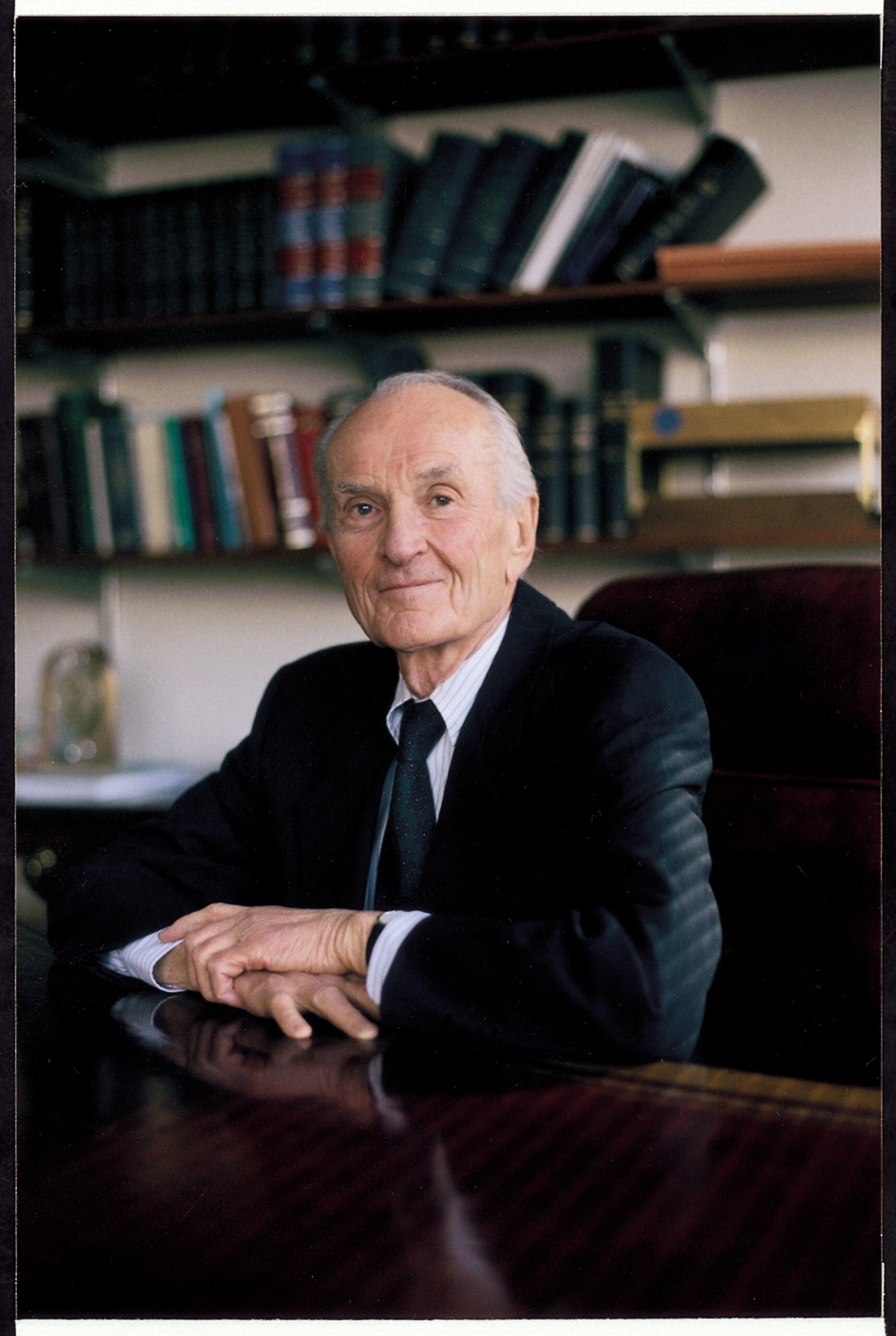Irwin Schneiderman ’48 is senior counsel at Cahill Gordon & Reindel, where he has worked for the past 53 years. A self- described “kid from the Jewish ghetto,” Schneiderman is a graduate of Brooklyn College and served as a Navy officer in World War II before enrolling at Harvard Law School. A longtime supporter of the Law School, Schneiderman is also active with numerous nonprofit organizations in New York.
Why do you think pro bono and volunteer work is important?
Law practice should not take 100 percent of your time. You should develop other interests as you go along. Obviously when you’re young you have less time for volunteer work, but I still think it’s a good idea to find these other interests. A friend once said to me, “I’m going to retire in a couple of years. What do you think I ought to do?” I said to him, “That’s a tough question to face now. You should have developed other interests along the way.” So as I became more senior in my firm and had more control over my affairs, I spent more time with my pro bono work. For example, I’ve been on the board of the City Opera for about 15 years now.
What led you to get involved with the City Opera?
The New York City Opera was organized by Mayor Fiorello LaGuardia as the people’s opera, to make it accessible to a large immigrant group at prices they could afford. That’s been its mission. With my background and my identification with the underdog, I think City Opera is doing very well. It’s not as grandiose as the Metropolitan Opera, but it’s serving its function.
You’re also very active with the New York chapter of the National Abortion Rights Action League. How did you get interested in this organization?
I’ve always been concerned about issues involving the separation of church and state. In my mind, “pro choice” is very much based on that. Sometimes I think the title of the organization does it a disservice. More than abortion is at issue. When you have a separation of church and state, as Justice [Benjamin] Cardozo said, “It’s about the right to be let alone.” So it’s much broader than abortion.
Why have you been so supportive of Harvard Law School?
I had a free education all the way, from beginning to end including Harvard, because of the G.I. Bill of Rights. I feel like it’s payback time. Harvard Law School opened the doors for me. It gives you the credentials. It gives you the opportunity. Of course, once it opens the door for you, you’re on your own.
What was the most valuable thing you learned at HLS?
I guess I learned to be a doubting Thomas, to always be questioning. Just because somebody makes a very flat assertion, don’t be afraid to ask why.
What’s a question you’re glad you asked?
As a very young lawyer, I was working on one of the more boring things you could think of–a public electric power company was selling some bonds. A group of bankers and lawyers were sitting around a table reviewing the registration statement, which referred to so many KVAs of this, so many KVAs of that. So finally I said, “What’s a KVA?” And there was this incredible sigh of relief around the table. Nobody knew what a KVA was, but nobody was going to ask. They ended up bringing an engineer in the room to explain to us that it stands for “kilovolt ampere” and what that actually means. So I learned early in my career not to be afraid to ask stupid questions.
